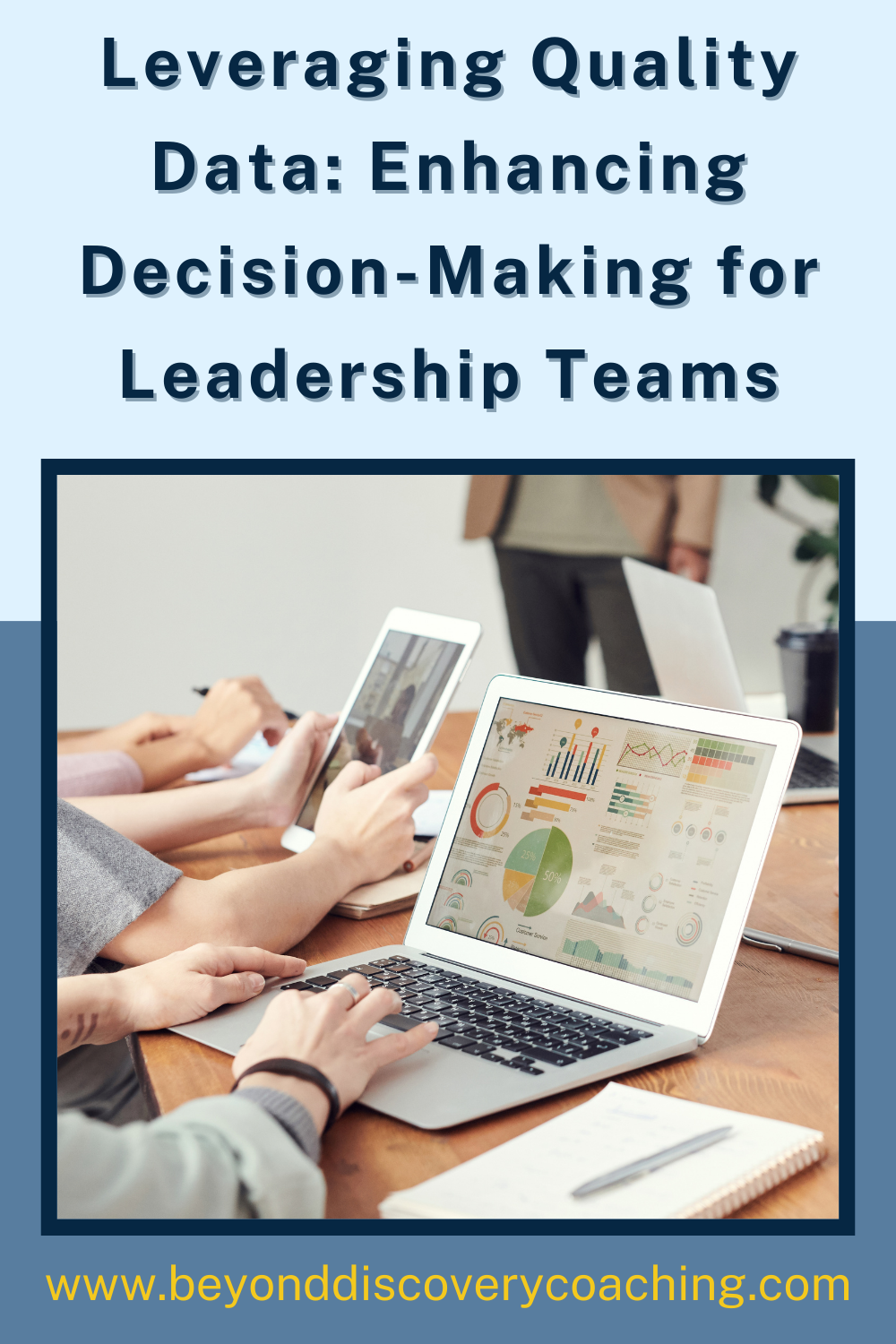Leveraging Quality Data: Enhancing Decision-Making for Leadership Teams
Data is the lifeblood of decision-making for modern businesses. The difference between thriving companies and those struggling to maintain relevance often hinges on the ability to interpret and leverage quality data.
For leadership teams, understanding and utilizing this data is paramount to guiding their companies and employees to success. Let’s look at the importance of quality data and data management in this article.
The Importance of Quality Data
Nowadays, it’s not just the sheer volume of data that matters. The quality of data is also crucial. Quality data is accurate, timely, relevant, complete, and trustworthy. The importance of maintaining and leveraging such data cannot be overstated.
Here are some reasons why quality data is important:
Informed Decision Making: Quality data provides a clear and accurate picture of a situation so leaders can make well-informed decisions. Relying on poor or inaccurate data can lead to costly mistakes and missed opportunities.
Operational Efficiency: Accurate data allows businesses to identify inefficiencies in their operations. Whether it’s streamlining a supply chain or optimizing marketing strategies, quality data provides insights that can result in cost savings and enhanced productivity.
Predictive Capabilities: With quality data, organizations can recognize patterns and trends. They can use the data to forecast future scenarios and prepare accordingly. This can be crucial in fields like finance, marketing, and healthcare.
Enhancing Customer Experience: Reliable data lets businesses know more about individual customer preferences. Tailoring their products and services accordingly can result in increased loyalty and satisfaction.
Risk Management: Quality data helps organizations identify potential threats or vulnerabilities. This allows for timely interventions and reduces potential fallout.
Ways to Ensure Data Quality
So, how can organizations ensure quality data? You can guarantee that quality data through:
Data Validation: Implement processes that ensure data accuracy at the point of entry. This could be as simple as using validation rules in data entry forms.
Regular Audits: Periodically review the data to identify inconsistencies or anomalies that might indicate errors.
Training: Ensure that staff who enter, process, or analyze data understand the importance of data quality and how to achieve it.
Leveraging Data for Enhanced Decision-Making
Once you have a foundation of quality data, the next step is leveraging it effectively. Leadership teams can leverage quality data by:
Predictive Analytics: Analyzing patterns in data allows companies to anticipate future trends. For example, a retailer might forecast the popularity of a product for the next season based on current sales data and broader market trends.
Real-time decision-making: With quality real-time data, leadership teams can make instantaneous decisions in dynamic environments.
Personalization: As mentioned earlier, businesses can tailor their products, services, and marketing to individual preferences. This can enhance the customer experience and drive loyalty.
Risk Management: Through data, companies can identify potential risks and vulnerabilities in their operations, allowing them to take proactive steps to mitigate these issues.
Need Help With Your Job Search?
Enroll in our online course, Find a Job Fast: The Job Search Accelerator For Career Professionals
How to Overcome Challenges in Leveraging Quality Data
While the advantages of leveraging data are clear, businesses face challenges. Here are some challenges and how your organization can overcome them.
Over-Reliance on Data
Over-reliance on data can lead to neglect of human intuition and experience. This requires a mindset shift within the organization, where data is seen as an aid rather than a replacement for decision-making. You can overcome this challenge by:
Balanced decision-making: Implement training sessions emphasizing the importance of a balanced approach, combining data-driven insights with human intuition.
Scenario analysis: Use tools like scenario planning to challenge data-driven assumptions and consider multiple potential outcomes, incorporating human experience and foresight.
Feedback loops: Encourage teams to routinely evaluate and discuss the outcomes of decisions. This helps teams understand where data provides clarity and where human intuition plays a role.
Privacy Concerns
Privacy concerns remain a major challenge for businesses, especially with personal customer data. You can address this issue by:
Data encryption and masking: Encrypt sensitive data and mask personal identifiers to protect individual identities.
Transparent data policies: Create and communicate transparent data usage policies, ensuring customers know how their data is being used.
Regular audits: Conduct regular audits of data-handling processes to identify and rectify any potential security loopholes.
Compliance with regulations: Stay updated and ensure compliance with data protection laws such as GDPR or CCPA, showcasing a commitment to data privacy.
Rapid Change
Another challenge is keeping up with the rapidly evolving landscape of data analytics tools and platforms. Here’s how to overcome it:
Continuous learning: Offer regular training and workshops for team members to familiarize them with the latest tools and technologies.
Tool standardization: While experimentation is good, try to standardize on a set of tools/platforms for core business operations. This helps minimize the learning curve and ensures consistent data handling.
Collaborate with experts: Consider partnerships with data analytics firms or consultants specializing in the latest tools and techniques.
Stay updated: Subscribe to industry journals, webinars, or forums related to data analytics and technology. This can help businesses stay abreast of the latest trends and best practices.
Conclusion
Businesses can utilize data to their advantage. However, it’s not just about having tons of data – it’s about having quality data and knowing how to use it. Leadership teams that know how to prioritize quality data get a competitive edge. They’ll be better equipped to navigate the complexities of today’s business environment.
Related:
Meet The Writer!
Jeanicka, an outgoing author, is renowned for her wit & charm. Her curiosity & thirst for knowledge helped her become a fast learner in science, tech, literature & arts. She writes to share ideas & experiences, driven by a passion for writing.

